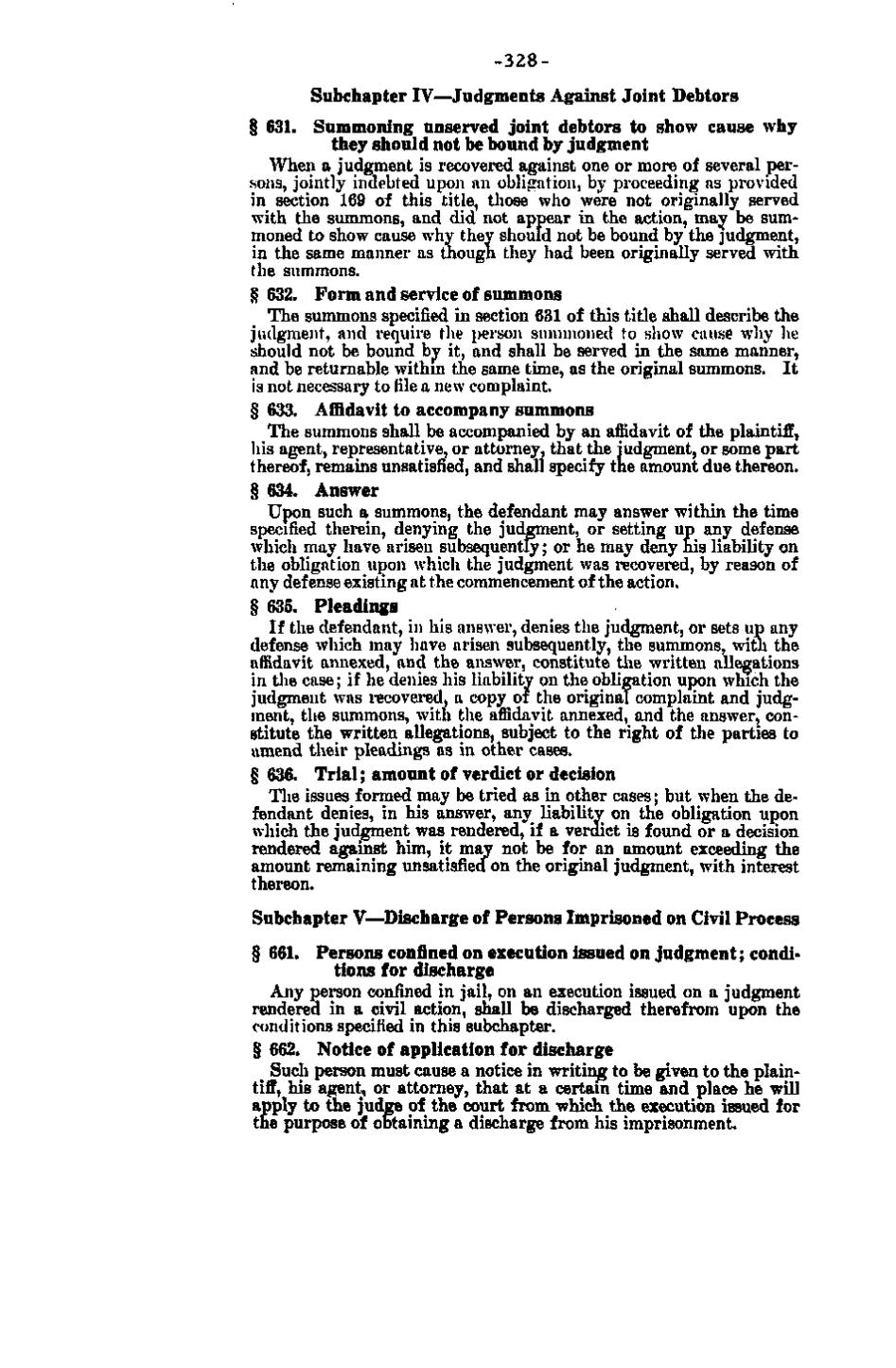–328–
-328Subchapter IV—Judgments Against Joint Debtors § 631. Summoning unserved joint debtors to show cause Avhy they should not be bound by judgment When a judgment is recovered against one or more of several persons, jointly indebted upon an obligation, by proceeding as provided in section 169 of this title, those who were not originally served with the summons, and did not appear in the action, may be summoned to show cause why they should not be bound by the judgment, in the same manner as though they had been originally served with the summons. § 632. Form and service of summons The summons specified in section 631 of this title shall describe the judgment, and require the person summoned to show cause wliy he should not be bound h^ it, and shall be served in the same manner, and be returnable withm the same time, as the original summons. I t is not necessary to file a new complaint. § 633. Affidavit to accompany summons The summons shall be accompanied by an affidavit of the plaintiff, his agent, representative, or attorney, that the judgment, or some part thereof, remains unsatisfied, and shall specify the amount due thereon. § 634. Answer Upon such a summons, the defendant may answer within the time specified therein, denying the judgment, or setting up any defense which may have arisen subsequently; or he may deny his liability on the obligation upon which the judgment was recovered, by reason of any defense existing at the commencement of the action. § 635. Pleadings If the defendant, in his answer, denies the judgment, or sets up any defense which may have arisen subsequently, the summons, with the affidavit annexed, and the answer, constitute the written allegations in the case; if he denies his liability on the obligation upon which the judgment was recovered, a copy of the original complaint and judgment, the summons, with the affidavit annexed, and the answer, constitute the written allegations, subject to the right of the parties to amend their pleadings as in other cases. § 636. Trial; amount of verdict or decision The issues formed may be tried as in other cases; but when the defendant denies, in his answer, any liability on the obligation upon which the judgment was rendered, if a verdict is found or a decision rendered against him, it may not be for an amount exceeding the amount remaining unsatisfied on the original judgment, with interest thereon. Subchapter V—Discharge of Persons Imprisoned on Civil Process § 661. Persons confined on execution issued on judgment; conditions for discharge Any person confined in jail, on an execution issued on a judgment rendered in a civil action, shall be discharged therefrom upon the ccmditions specified in this subchapter. § 662. Notice of application for discharge Such person must cause a notice in writing to be given to the plaintiflf, his agent, or attorney, that at a certain time and place he will apply to the judge of the court from which the execution issued for the purpose of obtaining a discharge from his imprisonment.
�
